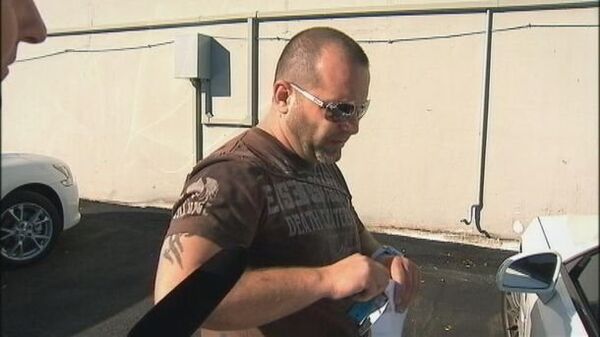WASHINGTON, September 24 (RIA Novosti) – A Soviet-born mobster turned FBI informant has denied being involved in the murder of an Atlanta rapper, and has claimed he was actually helping US authorities solve the crime, in an interview with an Atlanta television station.
Mani Chulpayev, a confessed pimp, career criminal, and former car dealer, is accused of placing a GPS tracker in a car he had leased to rapper Melvin Vernell III, aka “Lil Phat,” which prosecutors say enabled his killers to locate and execute him, WSB-TV reported Monday.
Vernell, 19, was shot and killed in his car outside a hospital in June 2012, where he was waiting for his child to be born. Prosecutors say it was a revenge killing ordered by drug dealers who believe the rapper had stolen from them.
But Chulpayev told the television station that Decensae White, who is accused of ordering the killing with another of Chulpayev’s car leasing clients, invested $160,000 in his auto dealership and was entitled to have access to GPS codes.
Chulpayev claims he was working for the FBI gathering information on the drug dealing operation and actually helped solve the case. "I'm telling you, the phone records and everything, they got most of the warrants from the judges because of me, because I was a reliable source," Chulpayev said.
Chulpayev reportedly arrived in New York City with his family from Soviet Uzbekistan in the late 1980s and quickly took up a life of crime with small-time Brighton Beach gangs known as “brigades” that were made up primarily of fellow immigrants from the Soviet Union.
After his arrest in 1998, he cooperated with federal authorities and admitted to engaging in a range of felonies, including trafficking women from the former Soviet Union to work as prostitutes in the United States, protection rackets targeting small businesses, and a variety of financial scams.
He testified to being “the money handler and the scheme organizer” for a crime group that US authorities called the “Gufield-Kutsenko Brigade,” The New York Times reported in 2002.
“I came up with the scams,” Chulpayev testified, the Times reported.
Chulpayev’s decision to turn state’s evidence, which led to dozens of convictions of members of Eurasian crime groups in the United States, so impressed authorities that he was granted time served for his admitted crimes in 2002.
In handing down the sentence, US federal judge Nina Gershon called Chulpayev’s crimes “chilling and inhuman” but said he proved to be “one of the most valuable witnesses in the history of the government’s battle against Russian organized crime,” the New York Daily News reported at the time.

